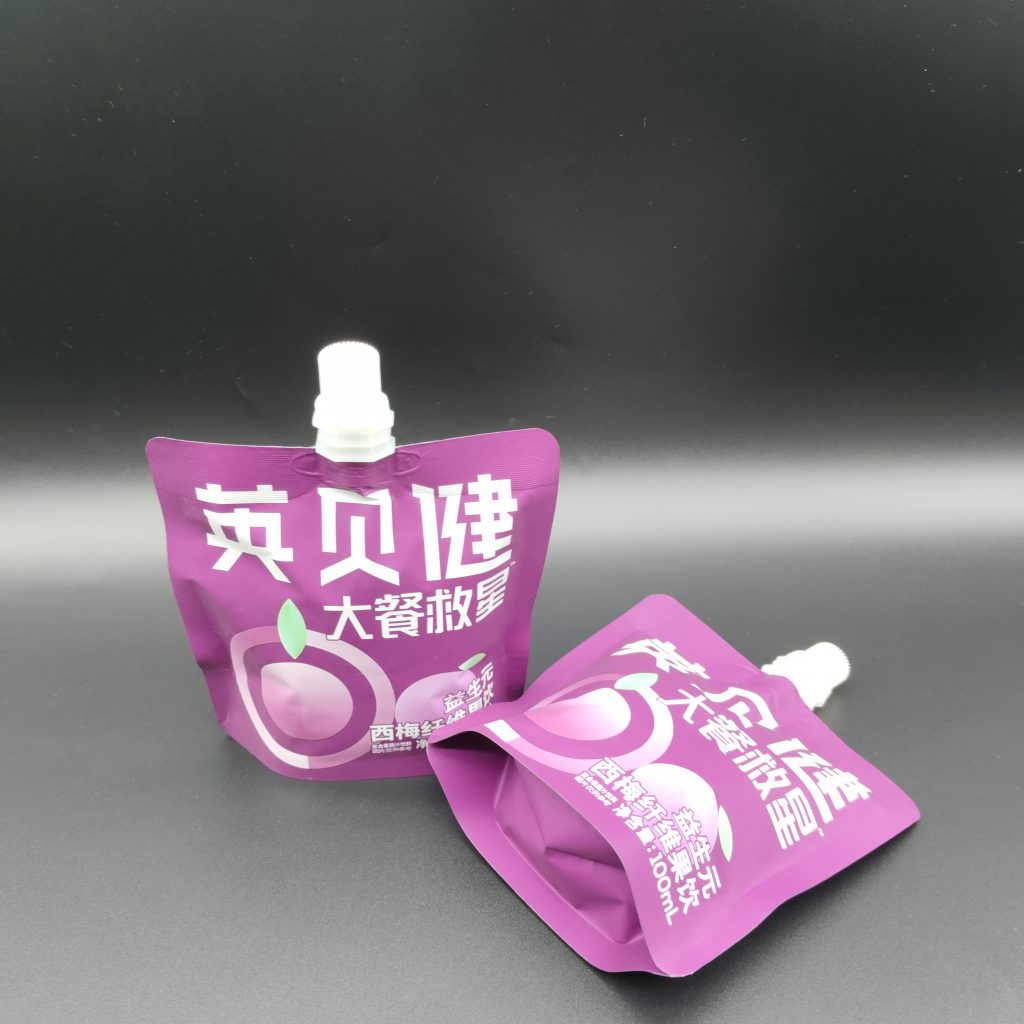The Pour-Fection Revolution: How Spout Packaging Pouches Are Changing Liquid Logistics
In the dynamic world of flexible packaging, the spout packaging pouch has emerged as an unsung hero, quietly revolutionizing how we store, transport, and dispense everything from premium olive oils to industrial chemicals. These innovative containers combine the convenience of rigid bottles with the sustainability of flexible films, creating new possibilities across multiple industries. Meanwhile, the humble resealable kraft paper bags is undergoing its own renaissance, evolving from simple dry goods carriers to sophisticated packaging solutions that balance eco-conscious materials with modern functionality. This dual evolution reflects broader industry shifts toward sustainable convenience and precision dispensing.

1. The Engineering Marvel Behind Modern Spout Solutions
Today’s spout packaging pouch systems represent a triumph of mechanical engineering and material science:
Advanced Flow Control
Anti-drip nozzles with 360° sealing collars
Variable flow rates (from 1ml to 500ml/sec)
One-way vacuum valves preventing oxidation
Material Breakthroughs
Multi-layer films achieving 24-month shelf life
Peelable induction seals for tamper evidence
PCR-content spouts (up to 40% recycled PP)
User-Centric Design
Ergonomic grips for arthritic-friendly use
Transparent dosage windows
Magnetic bases for refrigerator mounting
Leading brands like Chosen Foods now use spout packaging pouch designs that:
✓ Pour cleaner than glass bottles
✓ Use 70% less material than rigid containers
✓ Stand upright on uneven surfaces

2. Kraft's Comeback: Beyond Basic Brown Bags
The contemporary resealable kraft paper bags shatter stereotypes with unexpected innovations:
Structural Reinventions
Water-resistant wax alternatives (soy/carnauba blends)
Reinforced stress points with hemp fiber stitching
Gusseted designs accommodating 40% more volume
Smart Closure Systems
Biodegradable zippers from PLA composites
Magnetic seal strips for 100+ open/close cycles
Adhesive-free folded seals maintaining purity
Barrier Enhancements
Mineral-based coatings blocking grease and moisture
Plant-derived antimicrobial liners
Compostable window films for product visibility
Artisanal coffee roaster Blue Bottle reported a 30% reduction in packaging waste after switching to resealable kraft paper bags with integrated degassing valves.

3. The Sustainability Showdown: Comparing Footprints
When evaluating spout packaging pouch versus resealable kraft paper bags environmental impacts:
Carbon Emissions
Spout pouches: 55% lower than equivalent glass
Kraft bags: 72% reduction versus plastic laminates
Recycling Reality
Spout systems: Increasingly mono-material designs
Kraft solutions: Backyard-compostable certifications
Lifecycle Innovations
Spout pouch take-back programs
Kraft bag upcycling initiatives
A recent LCA study showed spout packaging pouch solutions for detergent achieved:
• 60% lower transport emissions
• 90% less product waste versus screw-top bottles
4. Sector-Specific Adaptations
Spout Packaging Pouch Specializations:
Baby Food: Angled spouts for mess-free feeding
Automotive: Chemical-resistant threaded closures
Medical: Sterile dry-break connectors
Resealable Kraft Paper Bags Niche Applications:
Pet Food: Odor-locking inner liners
Bulk Retail: Tare-weight optimized designs
Frozen Goods: Ice crystal-resistant coatings
Notable implementations include:
✓ Tesla’s battery coolant spout packaging pouch with RFID tracking
✓ Whole Foods’ 100% compostable resealable kraft paper bags for bulk items
5. The Hybrid Future: Blending Technologies
Forward-thinking converters are merging strengths:
Kraft-Spout Combinations
Paper-based pouches with molded fiber spouts
Kraft outer layers with food-grade inner liners
Smart Material Convergence
Conductive inks on kraft for freshness monitoring
Self-healing films on spout necks
Circular System Integration
Digital watermarking for both formats
Shared take-back infrastructure

